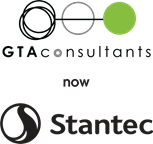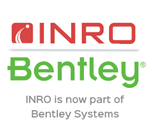Hydrogen Buses in the ANZSEA Region: A State-of-the-Art synopsis and key challenges moving forward
Robert Sim, David Ashmore, Foo Hah & Martin Glynn
Advisian/TSA Advisory, Victoria
This presentation was delivered at the 2021 Online Conference Series and until October 2022 is only available to registered delegates and Content Access Pass holders via Interchange. For information on accessing this and other presentations please review the Content Access Pass options.
ABSTRACT
A fuel cell bus utilises hydrogen to produce energy to power an electric motor which propels a vehicle. Often the fuel cell is augmented with batteries or supercapacitors for optimal performance. Hydrogen fuel cell buses are being presented as one of the primary technological facilitators of a zero emissions public transport future. They offer significant potential to reduce carbon emissions at source in urban and other settings, and remove the current reliance on international oil supply chains.
The mass adoption of the technology, however, is yet to occur due to significant cost and infrastructure barriers. These include a shortage of manufacturers, safety concerns due to hydrogen’s combustibility which makes storage and transportation complex, and the relatively high costs of production and maintenance. These barriers, however, are lessening, and across Australia, New Zealand and South East Asia policies and trials are being put in place to lay the ground for a significant roll out of hydrogen buses within the coming decade.
An example would be the recent Victorian H2 Victorian Renewable Hydrogen Industry Development plan. This sets out a planning roadmap for the role of hydrogen in transport, mapping out the supply chain so as to clearly flag land use and development requirements, to foster an environment by which renewable hydrogen can become an intrinsic part of the transport sector. Victoria will soon be releasing $20m worth of funding for Zero Emissions Vehicle pilots to bring this vision to fruition. The same is also happening in other Australian State, New Zealand Regions, and across South East Asia.
This presentation outlines these policies, and trial developments to date and ongoing by jurisdiction. It also, for key locales, notes specific on-the-ground issues and barriers, be they planning, operational or procurement related. An example would be the barriers involved when transitioning a depot’s facilities from diesel to hydrogen within a range of service contracting models, so as to ensure transparency, the management and allocation of key risks, and the ability to source skills and technology as needed. In presenting these issues the work will inform the design of pilot initiatives and help set out a roadmap to achieving a significant penetration of hydrogen fleet across the region within the next decade.
Author(s)
Robert Sim | Advisian/TSA
Robert Sim is a Senior Associate at Advisian/TSA, and specialises in business case and advisory support for complex transport, energy and resources infrastructure projects. He has recently been working closely with the public and private sector in Australia to advance the green hydrogen industry.
Robert has 15 years’ experience in the transport, energy, resources and social infrastructure sectors. He has worked closely with clients and stakeholders across Australia to advise on the best course of action for infrastructure investment through strategic advisory, techno-economic analysis, business case preparation. In particular, Robert has recently worked with State Governments and the private sector to assess and evaluate green hydrogen supply chains, including production of hydrogen for buses and green hydrogen export scenarios. These efforts have resulted in promising pathways being developed for green hydrogen production and potential supply to bus fleets globally. He holds a Bachelor of Environmental Science Honours degree from Curtin University.
Foo Hah | Advisian/TSA
Foo Hah Foo is a Principal at Advisian/TSA Advisory in Malaysia. He has over 30 years of experience in Australia and Asia, in the transport, power, energy and water sectors.
Foo advised governments across Asia on the delivery of multi-billion dollar infrastructure projects. This included rail, road transport and renewable energy projects.
Foo is a Principal at Advisian/TSA Advisory in Malaysia. He has over 30 years of experience in Australia and Asia, in the transport, power, energy and water sectors.
Foo’s experience in the infrastructure space covers various subsectors including rail, airports, roads, water and wastewater, power, renewables and public buildings. He is spearheading the development of TSA’s advisory business in SEA. His recent effort in Indonesia has seen success in introducing Australian knowledge and solutions in several infrastructure projects that included, ports, rail, toll roads, power and social infrastructure projects.
Foo is multi-lingual and skilled in project management, risk management, contract management, and business case. His appreciation of cross-cultural collaboration is a factor for his success in providing advice to some of the largest cross-border deals between International companies and clients in Asia.
David Ashmore | Advisian/TSA
David Ashmore is a commercial transport policy and procurement advisor with 28 years’ industry and government experience across Australia, New Zealand, Europe, Asia, Africa, and Latin America. David has led and worked within multi-disciplinary teams seeking to procure transport assets, services, and technology, in line with client and stakeholder needs.
David has worked as an independent advisor, and held senior positions with Advisian/TSA Advisory, LeighFisher, Auckland Transport, Saha, Booz Allen, and Steer. His areas of expertise include: Service Franchising; Infrastructure Procurement; Sector Regulatory Reform; Business Cases; Urban Transport Technologies; Commercial Due Diligence; Stakeholder Engagement; Business Planning; Technology Transfer; and Performance Benchmarking. He has offered specialist transport technology-commercial interface advice to governments and suppliers in several countries, and recently undertook research into new technology bus fleet propulsion at UCL and RMIT.
David is a member of Advisian/TSA's Capital Projects Advisory team supporting clients across the ANZSEA region. He holds a doctorate in urban transport policy transfer from UCL, and a Masters in Transport from Imperial College.
Martin Glynn | Advisian/TSA
Martin Glynn is an Associate at Advisian/TSA and specialises in transport strategy and infrastructure. He was previously Director Auckland for New Zealand’s Ministry of Transport with responsibility for leading advice to the government on Auckland transport issues. Martin has also provided advice in the health, emergency management and local government sectors.
Martin is an Associate at Advisian/TSA specialising in transport strategy and infrastructure projects. His recent assignments have included advice on port development and future capacity, assurance on rail systems and infrastructure projects, and procurement strategy advice for ferry terminal infrastructure. Martin’s previous roles have included Director Auckland at the New Zealand Ministry of Transport where he led the team responsible for providing advice to the government and implementing government decisions on Auckland transport issues. Martin has extensive experience in advising on and in leading project and inter-agency teams across a wide range of transport strategy, policy, revenue and funding issues.
Martin has also provided advice in the health, emergency management and local government sectors and has worked directly for politicians. He holds a First-Class Bachelor of Arts Honours degree in Economic Geography from the University of Otago and a Postgraduate Diploma in Journalism from the University of Canterbury.










